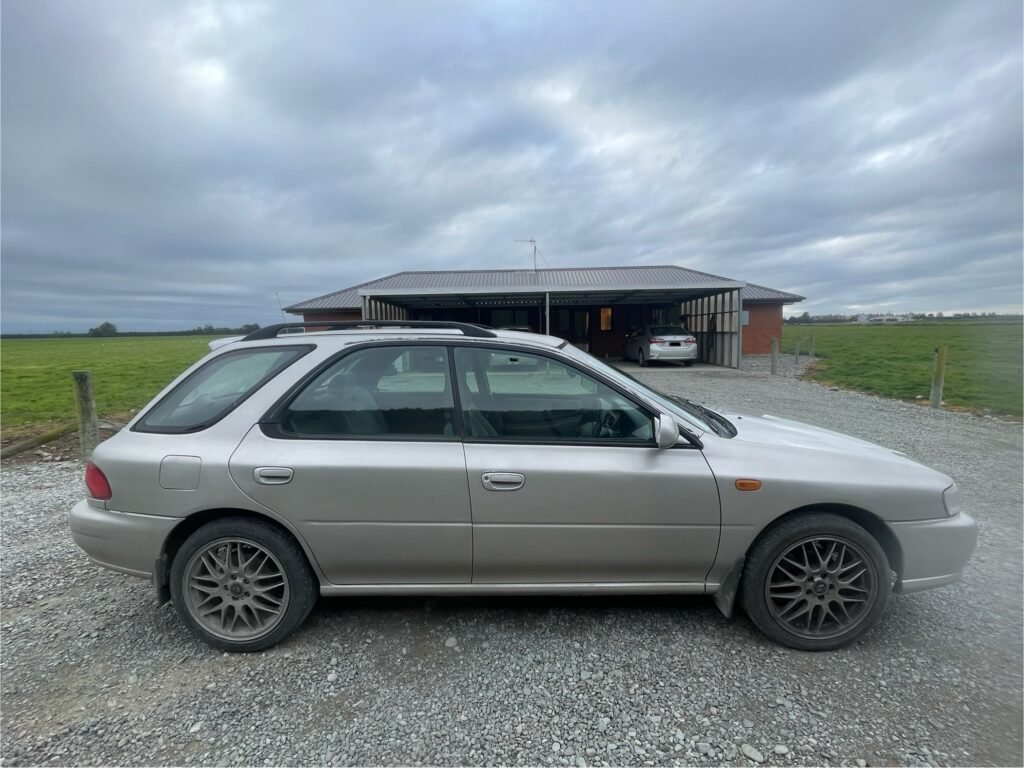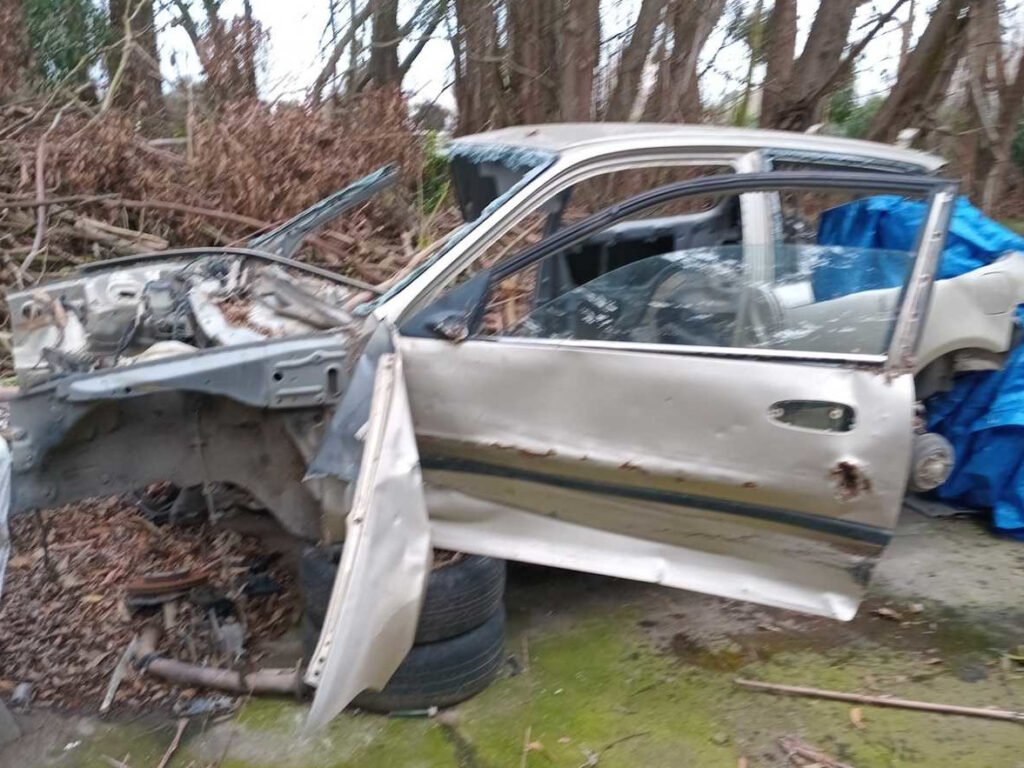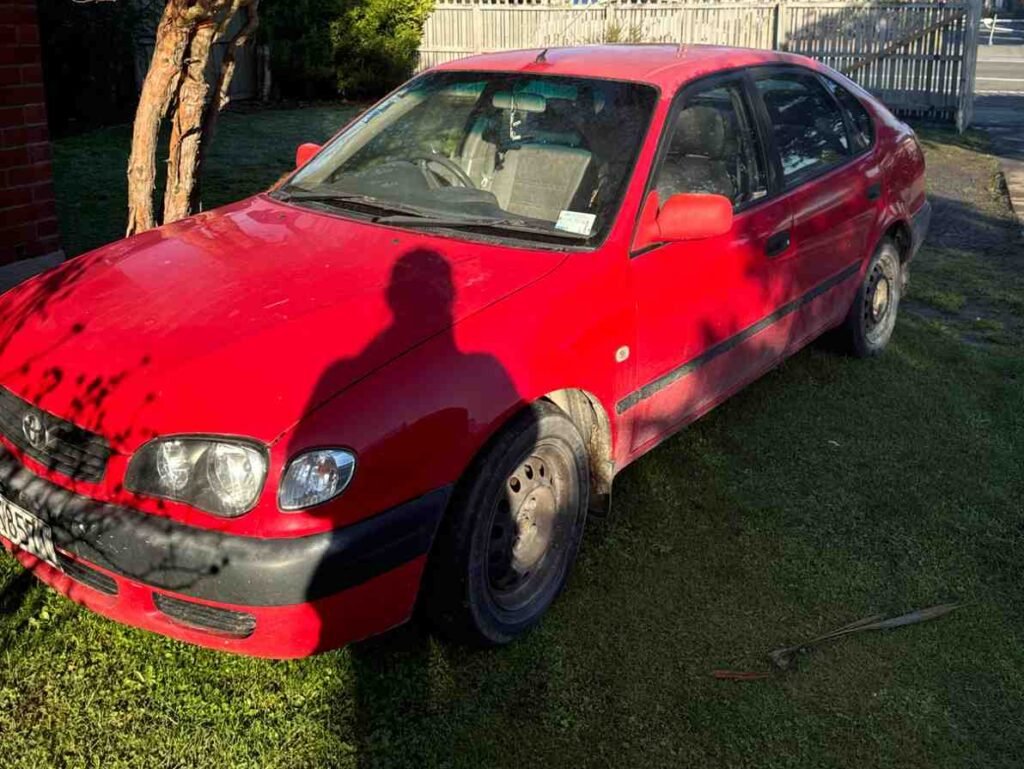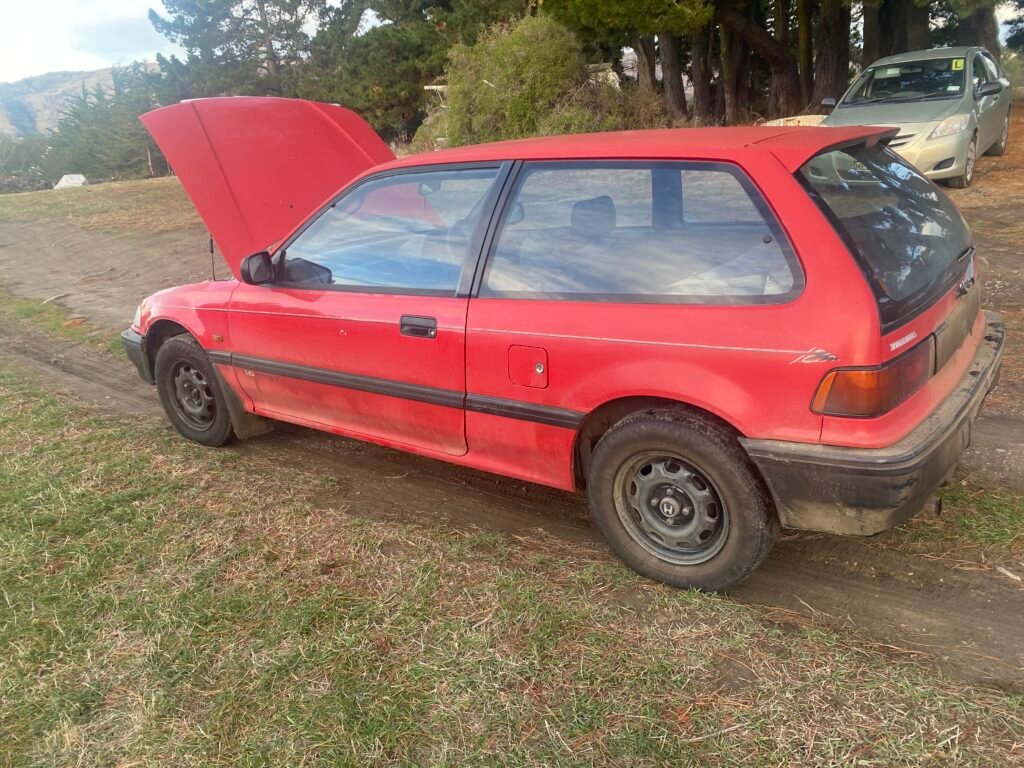1. Understanding the Scrapping Process
The first step in preparing your car for scrapping is understanding what the scrapping process involves. Scrapping a car isn’t just about towing it to a junkyard and collecting some cash. It involves several steps, including proper disposal, recycling parts, and following legal procedures. Each country, and sometimes each region, has its own laws concerning vehicle scrapping, so it’s important to familiarize yourself with local regulations.What Happens During Scrapping?
When you bring your car to a scrap yard, the process typically involves dismantling the vehicle to extract usable parts and materials. Many parts of your car, including the engine, transmission, catalytic converter, and even the tires, may be salvaged or recycled. The scrap yard will strip the vehicle of any valuable components and recycle materials like metal, plastic, and glass. These recycled materials often contribute to new car manufacturing, reducing the environmental impact of scrapping a vehicle.The Role of Cash For Cars Services
Services like Cash For Cars Hamilton play a vital role in the car scrapping process by offering car owners a hassle-free way to dispose of their vehicles while getting paid. Unlike traditional junkyards, cash for cars services typically handle everything from towing to paperwork, making the process smoother and more convenient for the car owner.Environmental Impact of Car Scrapping
Scrapping a car also has environmental benefits. Proper recycling prevents hazardous materials, such as oils, batteries, and coolants, from polluting the environment. Additionally, recycling metal parts from scrapped cars can significantly reduce the need for raw materials in manufacturing. It’s essential to choose a reputable scrapping service that follows environmentally friendly practices, such as Cash For Cars Hamilton, to ensure your vehicle is recycled responsibly.Legal Regulations for Scrapping a Car
Before you scrap your car, make sure you’re aware of any local laws or regulations. In many places, you’ll need to present certain documents, such as your car’s registration and proof of ownership. It’s important to work with a licensed scrap yard or cash for cars service to ensure you comply with all legal requirements. Failure to follow proper procedures could result in fines or complications later on, especially if your vehicle isn’t properly deregistered.In Hamilton, for example, you’ll likely need to inform the New Zealand Transport Agency (NZTA) that your vehicle is being scrapped. This ensures that the vehicle is removed from the registration system and that you’re no longer responsible for it. Failing to do this could mean that you’re still liable for any parking tickets or other violations associated with the car.How Much Can You Expect for Scrapping a Car?
The amount of money you’ll receive for scrapping your car depends on several factors, including the make, model, and condition of your vehicle, as well as the current market price for scrap metal. It’s a good idea to get multiple quotes from different scrap yards or cash for cars services to ensure you’re getting the best price for your vehicle. Cash For Cars Hamilton is known for offering competitive prices, ensuring you get the most value out of your scrap car.Now that you understand the basics of the scrapping process, it’s time to take the necessary steps to prepare your car for scrapping. In the following sections, we’ll dive deeper into what you need to do before handing your car over for scrap.
2. Remove Personal Belongings from the Car
One of the first and most important steps before scrapping a car is to thoroughly remove all personal belongings. Over the years, it’s easy to accumulate various items in your car—from CDs and sunglasses to important paperwork and valuables. Once you send your car to the scrap yard, you may not have the opportunity to retrieve these items, so it’s crucial to check every corner of your vehicle before scrapping it.
Why It’s Important to Clear Out Personal Items
Once your car is handed over for scrapping, it will be dismantled, and many parts will be salvaged or destroyed. If personal belongings are left in the vehicle, there’s a high chance they’ll be lost forever. Additionally, some items, such as identification documents, financial records, or garage door openers, can put your privacy and security at risk if they end up in the wrong hands.
Items Commonly Left Behind in Cars
Even the most careful car owners can forget to remove small or hidden items. Before scrapping your vehicle, be sure to check the following places:
- Glove compartment: Often a storage spot for essential documents such as insurance papers, registration, and user manuals. Make sure you retrieve these before scrapping.
- Center console: Items like phone chargers, loose change, or even small tools often get stashed here and forgotten.
- Trunk: Many people store emergency kits, sports gear, or even groceries in the trunk. Be sure to clean it out thoroughly.
- Seat pockets: Check the pockets behind the front seats for magazines, maps, or children’s toys that may have accumulated over time.
- Under the seats: Loose items can easily slip under seats and go unnoticed, including small valuables like jewelry or gadgets.
- Sun visors and door pockets: These often-overlooked spots can hide documents, sunglasses, or parking permits that need to be removed.
Don’t Forget to Remove Sensitive Information
When cleaning out your car, pay special attention to any documents or items that contain sensitive personal information. This could include car registration papers, old insurance forms, or anything with your address or credit card information. Identity theft is a real concern, so it’s essential to remove and properly dispose of any paperwork that could potentially expose your personal details.
In addition, if you’ve used your car’s infotainment system to sync your smartphone, don’t forget to delete all personal data. Many modern cars store information such as phone contacts, call history, and even GPS destinations. Reset the system to factory settings before handing the vehicle over for scrapping to ensure your personal data is completely erased.
Handling Leftover Trash and Unwanted Items
While you’re cleaning out your vehicle, it’s also a good idea to remove any trash or unwanted items. Scrap yards and cash for cars services, such as Cash For Cars Hamilton, typically deal with the vehicle itself, not the personal effects inside. Any trash left behind could be an inconvenience for the people dismantling the car, and in some cases, it could affect the value you receive for your vehicle.
If you’ve got old papers, water bottles, or fast-food wrappers hiding in the car, take the time to clean it out. Not only will this make the process smoother for everyone involved, but it will also ensure you haven’t accidentally left anything valuable or important behind.
Donating or Recycling Usable Items
In some cases, you might come across items in your car that you no longer need but that are still in good condition. If you have old clothes, blankets, or even car accessories that you no longer want, consider donating them to a local charity or recycling them where possible. This way, you can reduce waste and contribute to a good cause at the same time.
Cleaning out your car before scrapping it isn’t just about ensuring you don’t lose personal belongings. It’s also an essential part of preparing the vehicle for the scrapping process. Once your car is clear of all personal items, it’s time to move on to the next step: handling paperwork and legal requirements.

3. Handle the Paperwork and Legal Requirements
Scrapping a car isn’t just about getting rid of an old vehicle—it’s a legal process that requires certain paperwork and compliance with local regulations. Ensuring that you’ve handled all the necessary documents before scrapping your car will save you from potential legal headaches down the road. Many car owners overlook this crucial step, but it’s essential to protect yourself and ensure the process is completed legally and smoothly.
Vehicle Registration and Deregistration
One of the most important steps before scrapping a car is to deregister it. In many places, including New Zealand, your car must be removed from the national registration database before it can be scrapped. This is typically done through the country’s vehicle regulatory body—in New Zealand, that would be the New Zealand Transport Agency (NZTA).
By deregistering your car, you are officially informing the authorities that the vehicle is no longer in use and will be scrapped. If you fail to deregister your vehicle, you may still be held accountable for fees like registration renewals or road taxes. Worse, if the car ends up back on the road illegally, you could be liable for any parking violations, fines, or even accidents involving your former car.
How to Deregister a Car
In most regions, deregistering a vehicle is a straightforward process. Here’s a general guide to how it works:
- Gather your documents: You’ll need to present proof of ownership, which typically includes your car’s title and registration papers.
- Submit a deregistration form: Most countries will have an official deregistration form that you’ll need to fill out. In New Zealand, this can be done through the NZTA.
- Pay any outstanding fees: Before your car can be deregistered, you’ll need to pay any outstanding registration fees, fines, or road taxes.
- Get a certificate of deregistration: Once the process is complete, you’ll receive a deregistration certificate. Keep this document, as it may be required by the scrap yard or cash for cars service.
If you’re working with a reputable service like Cash For Cars Hamilton, they may assist with this paperwork and ensure everything is done correctly. Some services even handle the deregistration process for you, taking the hassle out of the situation.
Transfer of Ownership
Once you decide to scrap your car, you’ll also need to transfer ownership of the vehicle to the scrap yard or cash for cars service. This is a critical step because, until ownership is officially transferred, you may still be legally responsible for the car. If the vehicle is involved in any incidents after you’ve handed it over, it could lead to legal complications if the transfer of ownership hasn’t been properly completed.
The transfer of ownership process typically involves signing over the car’s title to the new owner. If you’ve lost your title, you’ll need to apply for a replacement before you can transfer ownership. Again, a reliable cash for cars service can help guide you through this process to ensure it’s handled correctly.
Cancel Insurance Coverage
After you’ve deregistered your vehicle and transferred ownership, don’t forget to cancel your car insurance policy. Continuing to pay for insurance on a car that no longer exists is a waste of money, and it could cause confusion with your insurance provider down the line. Contact your insurer as soon as you know the scrapping date and let them know when you’ll be canceling the policy.
In some cases, you may even be entitled to a partial refund for any unused portion of your insurance policy. Be sure to ask your insurer about this when you cancel the policy. You should also request written confirmation that your policy has been terminated, just to avoid any issues in the future.
Outstanding Loans or Liens
If you still owe money on your car, you won’t be able to scrap it until the loan is paid off and the lien is released. Most car lenders place a lien on the vehicle until the loan is fully repaid. This means that the lender technically owns the car, and you cannot sell or scrap it without their permission.
If you find yourself in this situation, contact your lender to discuss your options. You may need to pay off the remaining balance or negotiate an arrangement before you can proceed with scrapping the vehicle. Once the lien is lifted, you’ll be able to transfer ownership and scrap the car.
Documenting the Transaction
Finally, it’s important to keep a record of the entire transaction. When you scrap your car, ask for a receipt or certificate of destruction from the scrap yard or cash for cars service. This document proves that your vehicle has been scrapped, and it releases you from any future liability associated with the car. Having this proof is particularly important if the vehicle is later found to have been involved in any illegal activity or incidents after you sold it.
Services like Cash For Cars Hamilton will provide all the necessary documentation to ensure the process is fully transparent and legally compliant. Keeping these records can help protect you from any unexpected issues that might arise later.
Handling the paperwork and legal requirements can seem daunting, but it’s a critical step to ensure that the scrapping process is smooth and hassle-free. Once you’ve completed the paperwork, it’s time to consider another important step: removing any valuable parts from your vehicle before scrapping it.

4. Remove Valuable Parts and Accessories
Before scrapping your car, it’s essential to consider removing any valuable parts or accessories. Even if your car is no longer drivable, it likely contains components that still have significant value. Many car parts can be resold, reused, or recycled, potentially allowing you to make extra money before handing your vehicle over for scrap. This step is often overlooked, but it’s a smart way to maximize the value you get from your car.
Identifying Valuable Parts
Some parts of your car are worth considerably more than the scrap value of the vehicle itself. Depending on the make, model, and condition of your car, the following components could fetch a good price if sold separately:
- Catalytic converter: This part is particularly valuable because it contains precious metals such as platinum, palladium, and rhodium, which can be recycled for a high return. Be aware that catalytic converters are frequently targeted by thieves, so if your car still has its original converter, it’s worth considering removal before scrapping.
- Tires and wheels: If your tires are in good condition, you could sell them individually, as buyers are often looking for affordable, used tires. The wheels, especially alloy or premium versions, can also be resold or recycled for a higher price than what the scrap yard may offer.
- Battery: Car batteries can be recycled or sold for cash at many auto parts stores or recycling centers. If your battery is still functional, you might be able to sell it to another car owner in need of a replacement.
- Audio system and electronics: If your car has a high-end audio system, GPS, or any other valuable electronics, these can be removed and sold separately. Aftermarket upgrades, in particular, may fetch a higher price on the second-hand market.
- Seats and interior components: Leather or premium fabric seats, especially in good condition, can be sold to car enthusiasts or parts resellers. Other interior components, such as dashboards, steering wheels, or even floormats, may also hold resale value.
- Engine and transmission: Even if your car is no longer functional, its engine and transmission may still have valuable parts. Rebuilt engines and transmissions are often sold for significant amounts, depending on the model.
- Exhaust system: Like the catalytic converter, the exhaust system can also contain valuable metals that can be recycled or sold for scrap. Removing this part could increase the overall value you get before scrapping the car.
While removing these parts may take some time and effort, doing so can significantly increase the total amount you receive for your car. Many cash for cars services, like Cash For Cars Hamilton, allow you to remove parts in advance if you want to sell them separately. However, it’s important to check with the service beforehand to ensure they’ll still accept your vehicle without these components.
Selling Parts: What to Know
If you plan to sell individual car parts, you’ll need to do some research to ensure you’re getting the best price. Consider the following tips:
- Research the market: Look up the current value of the parts you plan to sell. Websites like eBay, Craigslist, or dedicated auto parts marketplaces can give you an idea of what similar parts are selling for.
- Advertise locally: Posting your parts for sale locally may help you avoid shipping costs and hassles. Websites like Facebook Marketplace and local classifieds can be good platforms for connecting with potential buyers.
- Be honest about condition: When selling used car parts, it’s important to be upfront about their condition. Include detailed photos and descriptions in your listings to ensure buyers know exactly what they’re getting.
- Bundle parts: If you’re selling smaller components, consider bundling them together to attract buyers looking for multiple items. For example, you could sell tires and wheels together as a package.
If you don’t have the time or expertise to remove and sell parts yourself, you can always consult with a mechanic or auto parts dealer. Many professionals offer part removal services and can even help you resell the parts, taking a small commission for their work. This could be a great option if you want to maximize your earnings without getting too involved in the process.
Recycling or Donating Parts
If selling parts isn’t your goal, you can also consider donating or recycling certain components. Tires, for instance, can be recycled at specialized facilities, and batteries can often be turned in for cash at recycling centers. Donating usable parts to local charities, car repair programs, or non-profits is another option that benefits the community while ensuring that your vehicle’s components don’t go to waste.
Recycling and donating car parts help reduce the environmental impact of scrapping and contribute to the sustainable use of materials. Many scrap yards also engage in responsible recycling practices, so if you’re unable to remove parts yourself, you can still feel good about choosing a service like Cash For Cars Hamilton that prioritizes environmentally friendly recycling.
Preparing the Car for Scrapping After Removing Parts
Once you’ve removed any valuable parts or accessories, make sure the car is still in a condition that’s acceptable to the scrap yard or cash for cars service. Some parts, such as the engine or transmission, may be required for the service to take the car, depending on their specific policies. It’s a good idea to confirm with the service what’s allowed before you start removing components.
In most cases, as long as the chassis and body are intact, the car will still be accepted for scrapping, but the total payout may be reduced if major components like the engine are missing. However, by selling the parts separately, you could still end up with more money overall than if you left everything intact.
By carefully selecting and removing valuable parts, you can significantly increase the return on your old car before scrapping it. Now that your car is prepped and valuable components have been removed, it’s time for the final step: choosing a reliable scrap yard or cash for cars service to complete the process.

5. Choosing a Reliable Cash for Cars Service
After preparing your vehicle for scrapping by removing personal items, handling the paperwork, and taking out any valuable parts, the final step is to choose a reliable scrap yard or cash for cars service. Not all services are created equal, so it’s crucial to select a company that is trustworthy, offers a fair price, and follows environmentally responsible practices. By doing your homework, you can ensure that the process is not only smooth but also beneficial for both your wallet and the environment.
Why It’s Important to Choose a Reputable Service
Choosing a reputable scrap yard or cash for cars service ensures that your vehicle will be disposed of legally and ethically. Unfortunately, some unlicensed or disreputable operators may cut corners when it comes to following legal procedures or environmental regulations. This could result in complications for you down the road, especially if the car is not properly deregistered or parts are resold in ways that violate local laws.
A reliable service like Cash For Cars Hamilton will handle all the necessary steps, including proper recycling, documentation, and payment, ensuring that you don’t have to worry about any legal issues after the transaction is complete.
What to Look for in a Scrap Yard or Cash for Cars Service
When selecting a scrap yard or cash for cars service, keep the following factors in mind to ensure you’re working with a trustworthy company:
- Licensing and certification: Always ensure that the scrap yard or cash for cars service is licensed and certified by the relevant authorities. In New Zealand, for example, companies should be registered with the New Zealand Transport Agency (NZTA) and follow all local regulations regarding car disposal and recycling.
- Environmental practices: Look for a company that follows environmentally responsible practices, such as safely disposing of hazardous materials like oils, batteries, and refrigerants. A reputable service will recycle as much of the vehicle as possible to reduce its environmental footprint.
- Competitive pricing: While it’s tempting to choose the first offer you receive, it’s a good idea to get quotes from several companies to ensure you’re getting a fair price for your car. Many cash for cars services will provide a no-obligation quote, allowing you to compare offers easily.
- Free towing and removal: Towing a non-functioning car can be expensive, so look for a service that offers free towing or vehicle removal. This can save you money and ensure the process is hassle-free.
- Customer reviews and reputation: Check online reviews and testimonials to get a sense of the company’s reputation. Reliable services like Cash For Cars Hamilton typically have positive customer feedback and a history of delivering excellent service.
- Fast and transparent process: The best scrap yards or cash for cars services will offer a quick and transparent process. You should know exactly what to expect, from how your car will be evaluated to how and when you’ll receive payment.
The Benefits of Using Cash For Cars Services
Cash for cars services, like Cash For Cars Hamilton, offer several advantages over traditional scrap yards. Here are some key benefits:
- Convenience: Cash for cars services typically handle everything for you, from evaluating your vehicle to towing it away. This saves you time and effort compared to selling the car for parts or arranging transportation to a scrap yard.
- Instant payment: Most cash for cars services provide immediate payment, either in cash or via electronic transfer, once your vehicle is picked up. This ensures you get paid quickly without any delays.
- No need to repair: Unlike selling a car privately, cash for cars services accept vehicles in any condition. You don’t need to worry about making repairs or cleaning up the car beforehand, as they will buy it as-is.
- Hassle-free paperwork: Services like Cash For Cars Hamilton handle all the paperwork, including ownership transfer and deregistration, making the entire process easy and stress-free.
Overall, cash for cars services provide a streamlined and efficient way to get rid of an old or damaged vehicle without the headaches that often come with traditional car selling or scrapping methods.
Contacting Cash For Cars Hamilton for Expert Service
When it’s time to scrap your vehicle, you want to ensure that you’re getting the best deal while also working with a reliable and environmentally responsible company. Cash For Cars Hamilton offers top-notch service, competitive prices, and a hassle-free experience that ensures you get the most value from your old car. With free vehicle removal and instant payment, scrapping your car has never been easier.
If you’re ready to scrap your car or have any questions about the process, Cash For Cars Hamilton is here to help. Contact us today for a free quote and take the first step towards responsibly scrapping your vehicle. Our team of experts is ready to assist you in every step of the process, ensuring a smooth, transparent, and profitable experience.




